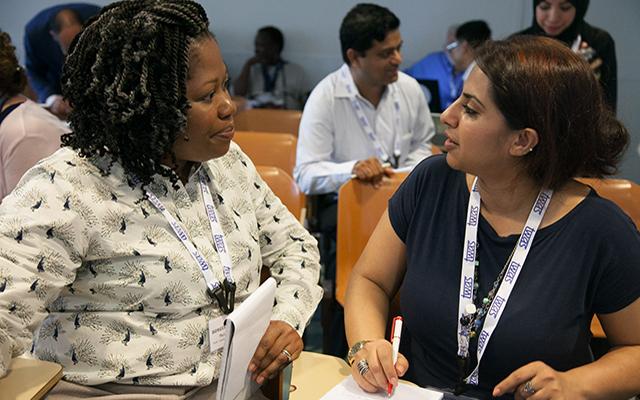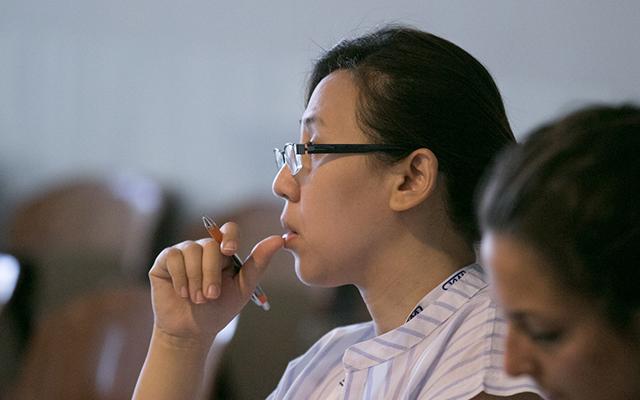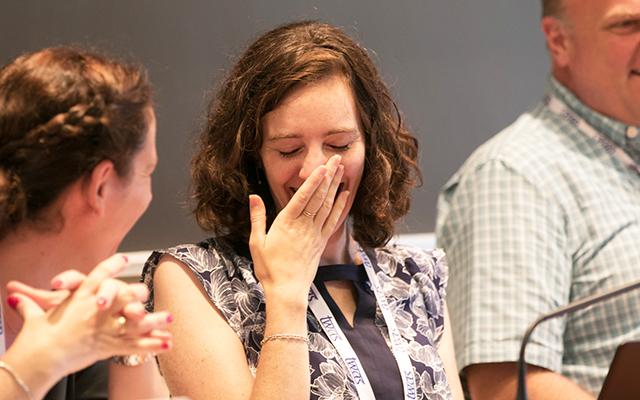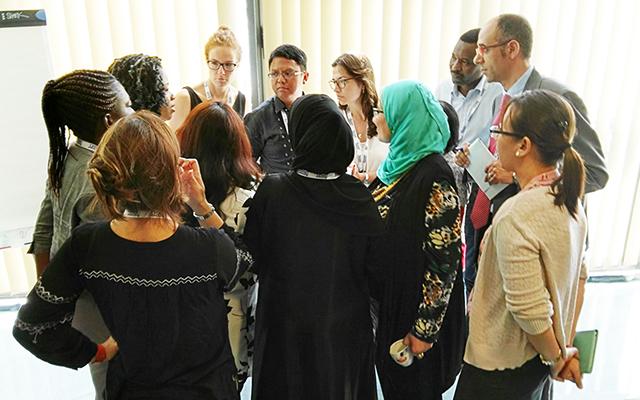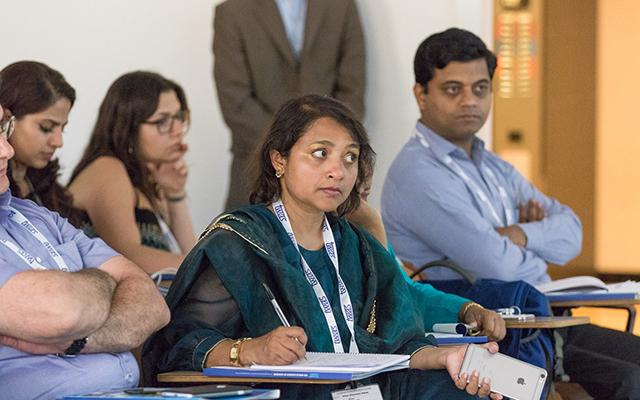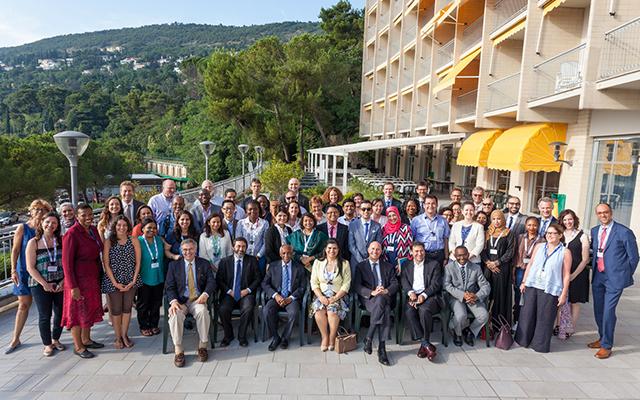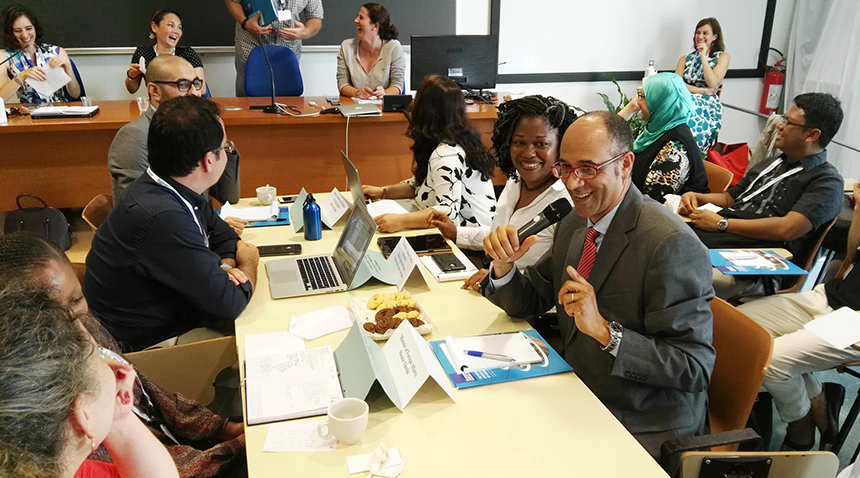
The story went like this: Two neighboring developing countries, both rich with a diversity of species, were divided by a deep difference in cultural values. One country, Industria, favored taking advantage of their species for rapid economic growth; the other, Pacifica, prioritized cautious environmental conservation. Over the decades, the squabbling over their chaotic border grew so intense that the World Bank decided to intervene. It brought both countries to the negotiating table and offered them an opportunity to apply for a US$2 billion grant, if they could settle on an agreement on how to manage their biodiversity.
But part-way through the process, a surprising rumour about a secret meeting put the entire effort in jeopardy.
This was just one turning point in a high-stakes role-playing exercise that was central to the annual science diplomacy course organized by the American Association for the Advancement of Science (AAAS) and TWAS in Trieste, Italy. The course, held from 11-15 July, brought together about 30 participants from 22 nations and used the simulation, along with presentations and discussions, to teach about the complex workings and potential value of science diplomacy. Participants included both scientists and government officials at various stages in their careers and from countries such as Brazil, Finland, Ghana, Iraq, Malaysia, Oman and Pakistan.
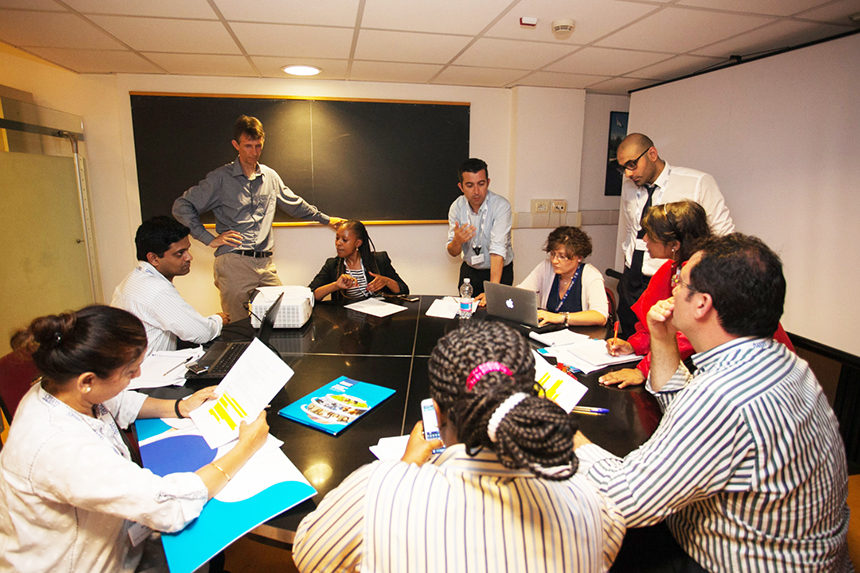 In the simulation, participants were given roles such as high-level ministers, national parks directors and indigenous community representatives working together to solidify the deal. They played out private caucuses, negotiating strategies and responses to unforeseen disruptions. Each disruption was designed to teach important skills through hands-on experience in science diplomacy.
In the simulation, participants were given roles such as high-level ministers, national parks directors and indigenous community representatives working together to solidify the deal. They played out private caucuses, negotiating strategies and responses to unforeseen disruptions. Each disruption was designed to teach important skills through hands-on experience in science diplomacy.
The rumour was one of the most dramatic disruptions – one that almost completely derailed the negotiations. Word spread that a World Bank delegation member with the International Chamber of Commerce (ICC) met privately with two Industria representatives, presenting an offer from pharmaceutical companies to use a plant grown in Pacifica to develop a skin cream. The news rattled the delicate trust between everyone involved. Both countries began insisting on meeting bilaterally and Pacifica all but accused the World Bank delegation of collusion.
The ICC representative, played by Ana Elorza Morena of the Spanish Embassy in Washington D.C., became incensed. “I’m shocked. I’m really shocked. I want to deny all the accusations, and I want to say: I was approached by the two members of the Industria delegation,” she said. “And think about it! You want a proposal of 2 billion dollars from us.”
“Excuse me,” interrupted Pacifica’s increasingly irritated Foreign Affairs Minister, played by Mounir Ghribi of Tunisia, currently the head of international collaboration and strategic partnerships for the National Institute of Oceanography and Applied Geophysics in Italy. “I understand that money is important, but we are not here begging. We are from the developing world, but we still have dignity.”
A safe place for difficult lessons
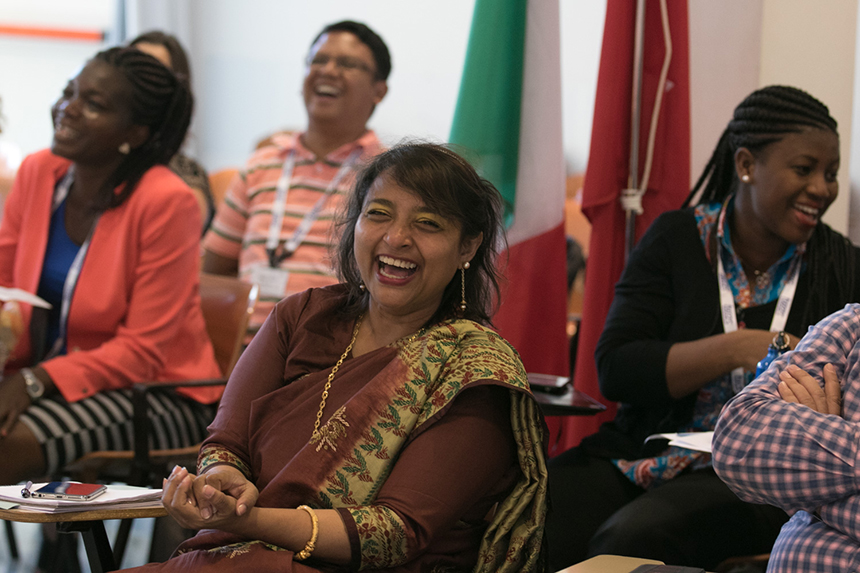 The simulation gave students the difficult challenge of reconciling environmental concerns, indigenous rights and commercial development interests all at once – both within their individual nations, and between nations. The simulation’s organizers planned several disruptions to the process, such as breaking news of a massive poaching crime near the border of Industria and Pacifica. One disruption took a humorous turn, after it was revealed that an outside foundation offering alternative funding was run by a politically embarrassing cult that believes humanity descended from aliens.
The simulation gave students the difficult challenge of reconciling environmental concerns, indigenous rights and commercial development interests all at once – both within their individual nations, and between nations. The simulation’s organizers planned several disruptions to the process, such as breaking news of a massive poaching crime near the border of Industria and Pacifica. One disruption took a humorous turn, after it was revealed that an outside foundation offering alternative funding was run by a politically embarrassing cult that believes humanity descended from aliens.
Using surprise and humour, the role-playing exercise helped make those lessons enjoyable and more memorable. “Simulations enable experiential learning in a fun and safe-to-fail environment – without the burden of decision,” said Marga Gual Soler, the project director at the AAAS Center for Science Diplomacy who organized the course. “That empowers scientists and diplomats to jointly explore their creative side and flexibly adapt to unpredictable negotiation situations.”
The goal of the exercise was to allow students to learn from their own and each other’s mistakes, said David Schindel of the Smithsonian Institution's U.S. National Museum of Natural History, who ran the simulation. “It’s all about acquiring skills of negotiation and diplomacy through some funny and sometimes painful lessons.”
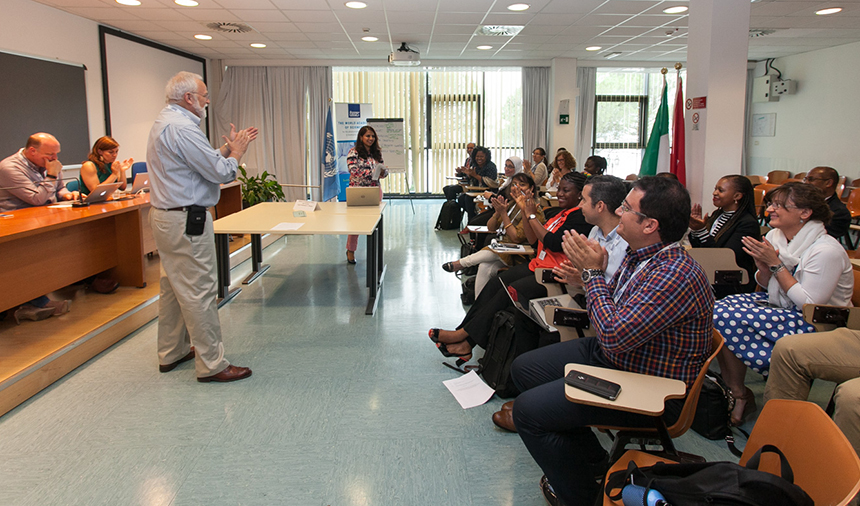 Schindel described the structure of the simulation as a three-act play. The first act introduced the subject and the participants to each other, and then in act two they introduced crises and loss of hope into the proceedings. Act three was about redemption and resolution, in which participants finally put together a deal.
Schindel described the structure of the simulation as a three-act play. The first act introduced the subject and the participants to each other, and then in act two they introduced crises and loss of hope into the proceedings. Act three was about redemption and resolution, in which participants finally put together a deal.
When the participants failed to react diplomatically to news of the secret-meeting rumour during act two, it was a valuable teaching moment. “What’s wrong with this?” Schindel asked the participants. “It’s unsubstantiated. It’s anonymous. It may not be accurate.”
He explained that in such situations, diplomats may prepare for the worst but should assume the best about their negotiating partners, at least in public. “The point is, if it’s unsubstantiated, don’t react to it as if it were true. You can call on standard investigation procedures that give you a way to reduce tension and avoid confrontation and making accusations you may regret later. Even if you don’t trust the other side, you’re here to explore a trusting relationship.”
Find a full album of photos from the event on our Flickr page.
Real-world science diplomacy
In addition to the simulation, participants in the summer course heard from scientists and others directly engaged in real-life science diplomacy, who explained how it can build stronger science and better relationships between nations.
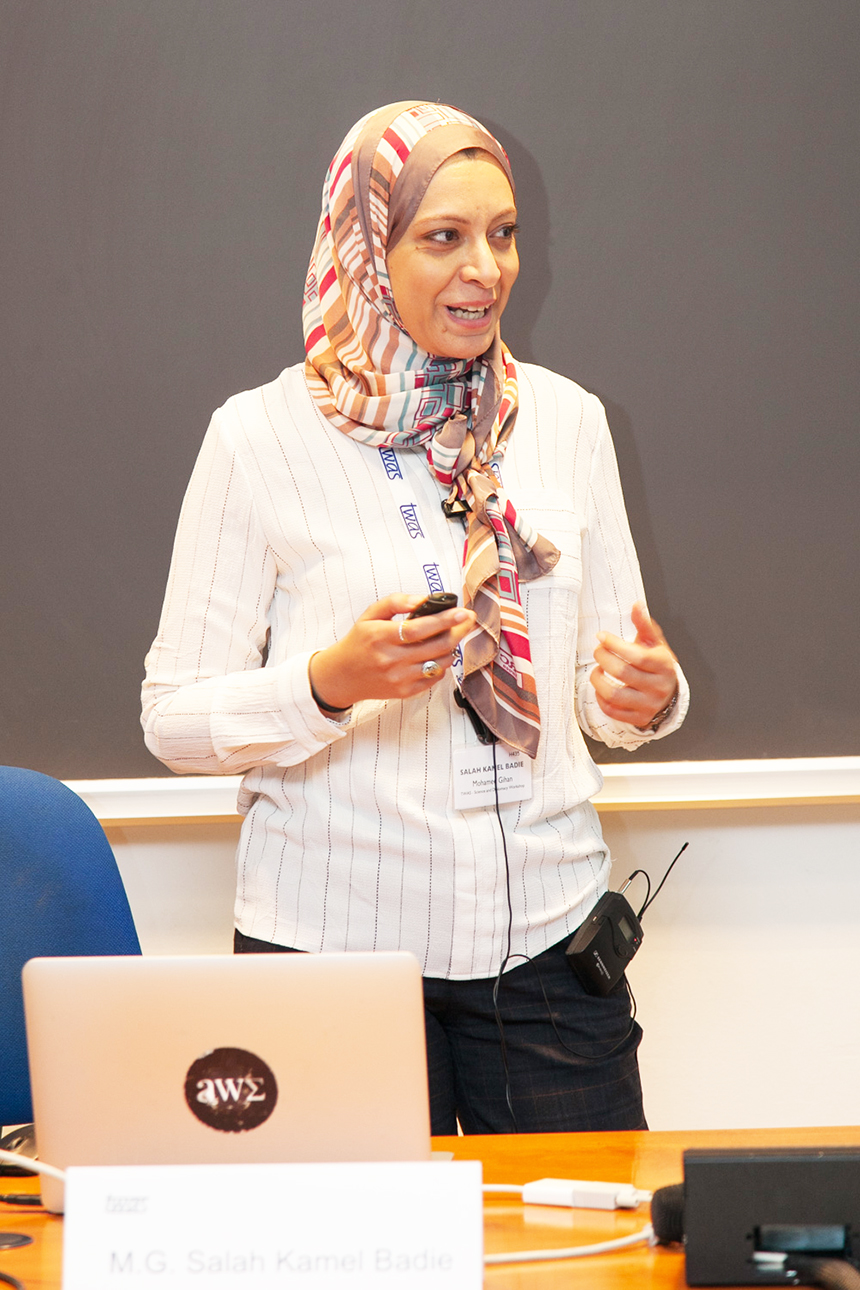 Among the science leaders at the course were Princess Sumaya bint El Hassan, the president of the Royal Scientific Society of Jordan, and Vaughan Turekian, science and technology adviser to U.S. Secretary of State John Kerry.
Among the science leaders at the course were Princess Sumaya bint El Hassan, the president of the Royal Scientific Society of Jordan, and Vaughan Turekian, science and technology adviser to U.S. Secretary of State John Kerry.
One highlight was a presentation by Gihan Kamel of Egypt, who is currently the only woman scientist at SESAME – the Synchrotron-light for Experimental Science and Applications in the Middle East. SESAME is an international research centre in Jordan operated by nine countries from the Middle East and neighbouring regions that serve as members. It is scheduled to begin operations next year and is a prominent example of science collaboration among countries that sometimes have strained political relationships.
The process to set SESAME up required difficult diplomacy to overcome skepticism in the region, Kamel said. She explained that it was challenging to even bring representatives of the nine governments together and generate interest. But now that the project is almost complete, it is generating more interest from researchers from countries that are both members and non-members.
Still the project hit roadblocks, such as when a portion of the institute’s roof collapsed after an unprecedented snowfall in 2013. All nine members share the annual budget of SESAME, so they had to come together to negotiate how to manage shared resources for the repairs.
"Difficulties and sudden or unpleasant circumstances are expected," she said, "but whenever this occurs, the members come together and figure out how to solve the problem in the best way for everyone."
Stepping into new perspectives
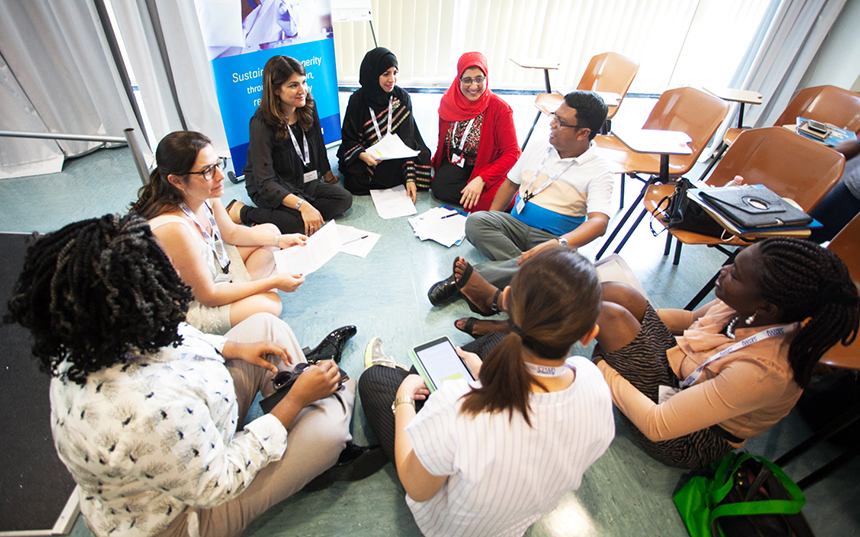 Students in the summer course said that the simulation helped them better understand the perspective of diplomats and appreciate the different skills necessary to make diplomatic progress.
Students in the summer course said that the simulation helped them better understand the perspective of diplomats and appreciate the different skills necessary to make diplomatic progress.
Each participant was given a role somewhat different from their normal occupation, forcing them to assume a view of international politics from an unfamiliar perspective. For example, Leandra Gonçalves, a marine biologist studying international relations of Universidade do Estado de São Paulo in Brazil, was placed in the role of a ritual healer advising the Pacifica delegation.
“It was very interesting to see how, in real life, traditional communities need to make a huge effort to be heard in these kinds of negotiations,” Gonçalves said. “This made a significant impact on me because now Brazil is facing the Olympic games, and fishermen are completely set aside by this huge infrastructure that is going to be erected. So in some ways they will not be allowed to fish.”
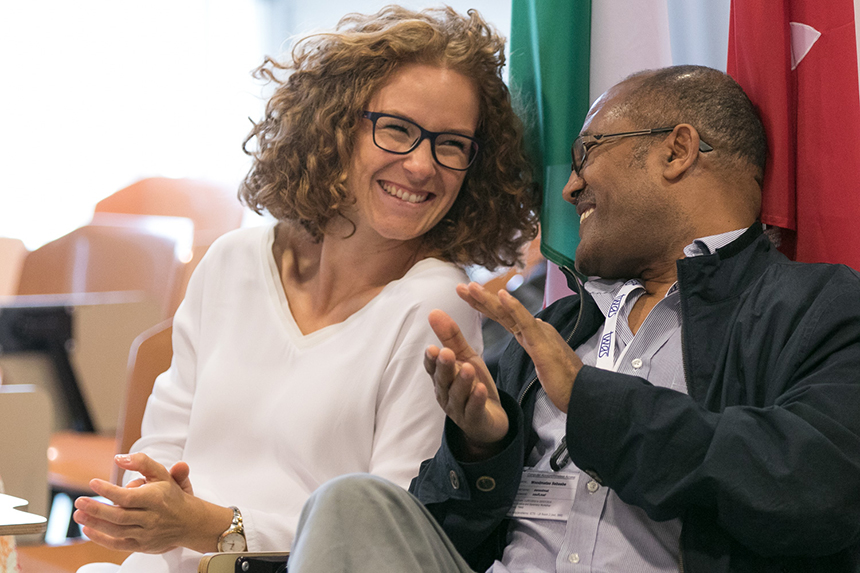 Social scientist Tinyiko Mushwana, of South Africa’s Department of Science and Technology (DST), said the experience challenged her to reflect on her role as deputy director of DST’s Africa Multilateral Cooperation Directorate, which coordinates South Africa’s scientific engagement with other African institutions.
Social scientist Tinyiko Mushwana, of South Africa’s Department of Science and Technology (DST), said the experience challenged her to reflect on her role as deputy director of DST’s Africa Multilateral Cooperation Directorate, which coordinates South Africa’s scientific engagement with other African institutions.
“Playing the role of foreign affairs minister of my country Industria was daunting at first," she added, "but also helped me to appreciate some key principles in applying political savviness to scientific collaboration.”
Cancer researcher Yusuf Baran of Abdullah Gul University in Turkey played the chancellor of Industria’s National University. After participating in the course, he recommended that similar simulations be held regionally, especially in areas in need of peacemakers and problem-solvers.
“Science," said Baran, "is the best and only platform that brings together all the people from around the world from different nations, religions and cultures, and forms a bridge between them.”
Sean Treacy


